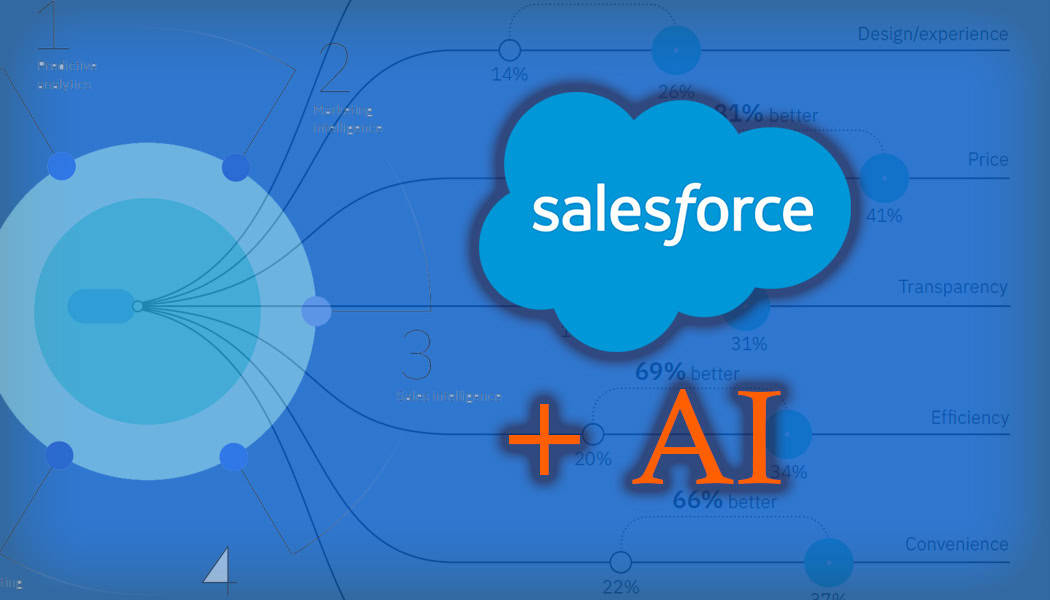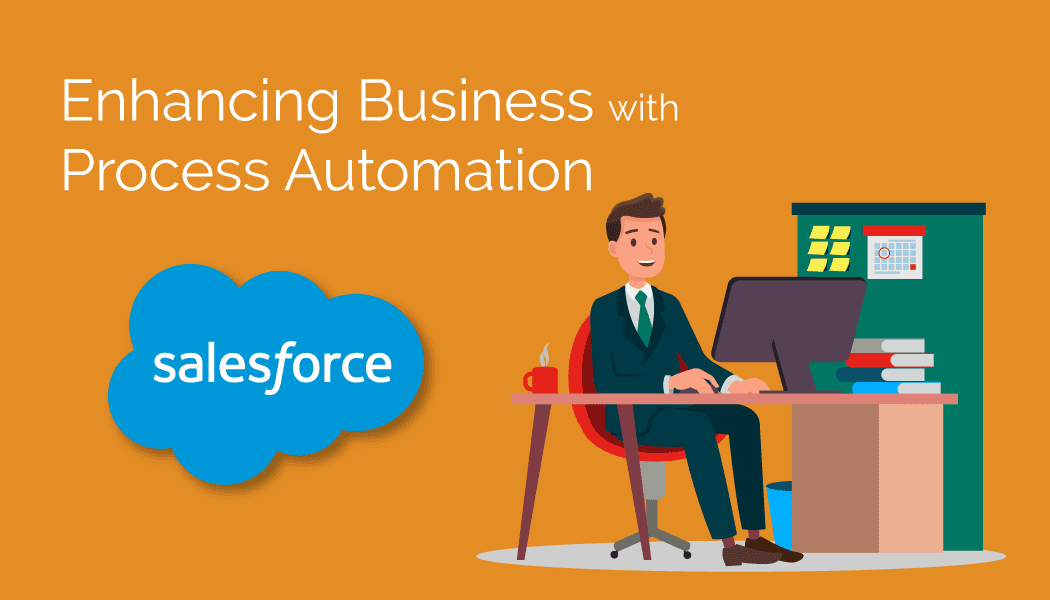Salesforce Advanced Analytics
The State of Data & Analytics Report
By prioritizing data quality, aligning data strategy with business goals, and leveraging Salesforce advanced analytics tools, organizations can drive innovation, improve decision-making, and enhance customer satisfaction.
Unlock the full potential of Salesforce with Advanced Analytics
There is immense potential in applying advanced analytics to gain a competitive edge, with the power of data to drive strategic decision-making. Salesforce, the leading Customer 360 platform, recognizes the importance of data and analytics in transforming how businesses drive customer success.
In their “State of Data and Analytics” report, Salesforce surveyed thousands of analytics and IT decision-makers and line-of-business leaders to gain insights into the strategies, challenges, and tactics employed in the realm of data and analytics. Let’s delve into the key findings of the report and explore how advanced analytics can unlock the full potential of Salesforce.
The State of Data and Analytics in Salesforce: 3 Key Findings
1. Strategies for Navigating Advancements in AI
As artificial intelligence (AI) continues to evolve, organizations are faced with the challenge of effectively managing and utilizing large volumes of data. According to the survey, 87% of analytics and IT leaders identified data management as a high priority due to advances in AI. This underscores the importance of having a strong data foundation to fuel AI-driven insights and decision-making.
2. Overcoming Data Challenges
Despite recognizing the value of data, organizations face several hurdles in leveraging it effectively. Security threats emerged as the top barrier to successful data management, as cited by both analytics and IT leaders and line-of-business leaders. However, the survey also revealed a misalignment between data strategy and business goals, complicating efforts to fully harness the potential of data. Additionally, the survey highlighted the expected 22% increase in data volume over the next 12 months, adding to the complexity of data management.
3. Strategies for Data and AI Success
To address these challenges, analytics and IT leaders are employing a combination of strategies to secure and scale their data and analytics capabilities. This includes reimagining data governance, strengthening internal data culture, and leveraging cloud technologies. The survey further revealed that simplifying IT management is a significant driver for organizations moving their applications and analytics to the cloud.
Unlocking the Value of Trusted Data
Trusted data lies at the core of successful data-driven strategies. Salesforce’s survey found that 92% of analytics and IT decision-makers emphasized the need for trustworthy data, highlighting its increasing importance. With the rise of generative AI, which relies heavily on high-quality data inputs, organizations must ensure the reliability and integrity of their data to fuel AI-driven insights effectively.
Data Maturity and AI Preparedness
The survey delved into data maturity and its impact on AI adoption. While only 6% of analytics and IT leaders classified their data maturity as below industry standard or nonexistent, benchmarking against peers remains a challenge. The survey highlighted that high-maturity organizations exhibited superior infrastructure, strategy, and alignment compared to low-data-maturity organizations. A strong data culture, encompassing behaviors and beliefs that value data usage, was also found to be a key differentiator.
Generative AI: Opportunities and Concerns
Generative AI, a groundbreaking technology with applications ranging from content creation to software development, presents significant opportunities for businesses. However, the survey revealed that over three-quarters of business leaders fear they are missing out on the benefits of generative AI. This concern is particularly prevalent among marketing leaders, with 88% expressing worry about falling behind. Organizations must embrace generative AI to unlock its full potential and stay ahead in the rapidly evolving digital landscape.
The Impact of AI on Decision-Making and Customer Satisfaction
AI-powered applications, such as predictive analytics and chatbots, have already demonstrated their value in improving decision-making and operational efficiency. Technical leaders using AI reported faster decision-making and more time for strategic challenges. Moreover, customers have benefited from significant improvements in satisfaction thanks to AI-driven personalized experiences. Given the dependency of AI outputs on the quality of underlying data, organizations must prioritize data management to ensure accurate and reliable insights.

Building a Strong Data Culture
Data culture plays a pivotal role in driving data-driven decision-making and innovation within organizations. Salesforce’s survey highlighted the importance of fostering a strong data culture to enhance confidence and adoption of data-driven strategies. Overcoming barriers such as security concerns, insufficient tools, and training is crucial. The survey revealed that over seven in ten analytics and IT leaders are increasing budgets for data analysis tools and training to cultivate a data-driven culture.
The Role of Data Governance
Data governance, a set of rules and policies governing data collection, management, and usage, is instrumental in ensuring data trustworthiness. The survey found that 85% of analytics and IT leaders use data governance to certify baseline data quality. Moreover, high-maturity organizations leverage data governance to democratize data access and drive alignment across stakeholders. A robust data governance framework fosters trust in data and enables organizations to make informed decisions based on reliable insights.
Advanced analytics and data engineering are a MUST to unlock the full potential of organizational data.
Managing Data Gravity with Cloud Solutions
As data volumes continue to grow, organizations face the challenge of managing data gravity—the increasing complexity and cost of relocating data. The survey revealed that analytics and IT leaders adopt multiple strategies, such as hybrid cloud solutions and improving network infrastructure, to mitigate the impact of data gravity. Salesforce’s cloud-based analytics tools provide flexibility and scalability, allowing organizations to adapt to changing data needs and overcome the challenges posed by data gravity.
Is this achievable within Salesforce alone?
Salesforce offers a comprehensive suite of solutions that empower businesses to navigate the complexities of data management, AI adoption, and data culture. However if you wish to incorporate outside sources, such as an ERP, you may need additional advanced analytics support.
Partnering with Smartbridge enables businesses to stay ahead of the curve and unlock the power of advanced analytics in driving digital transformation and achieving business success. Unlike the typical Salesforce consulting partner, Smartbridge is comprised of data & analytics experts that focus on data engineering and data science far beyond Salesforce and CRM needs. If you wish to bridge the gap between your CRM data and other sources, such as your ERP, reach out today. Skip sales and talk to managers from our Salesforce and data teams. Put time on our schedule here.
Keep Reading: Salesforce Customer 360, more than just a CRM
Looking for more on Salesforce or Data & Analytics?
Explore more insights and expertise at smartbridge.com/salesforce and smartbridge.com/data.
There’s more to explore at Smartbridge.com!
Sign up to be notified when we publish articles, news, videos and more!
Other ways to
follow us:






